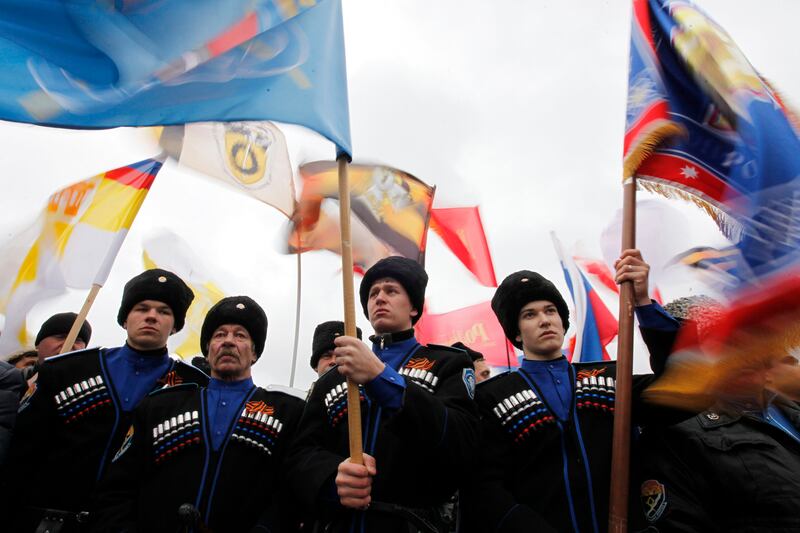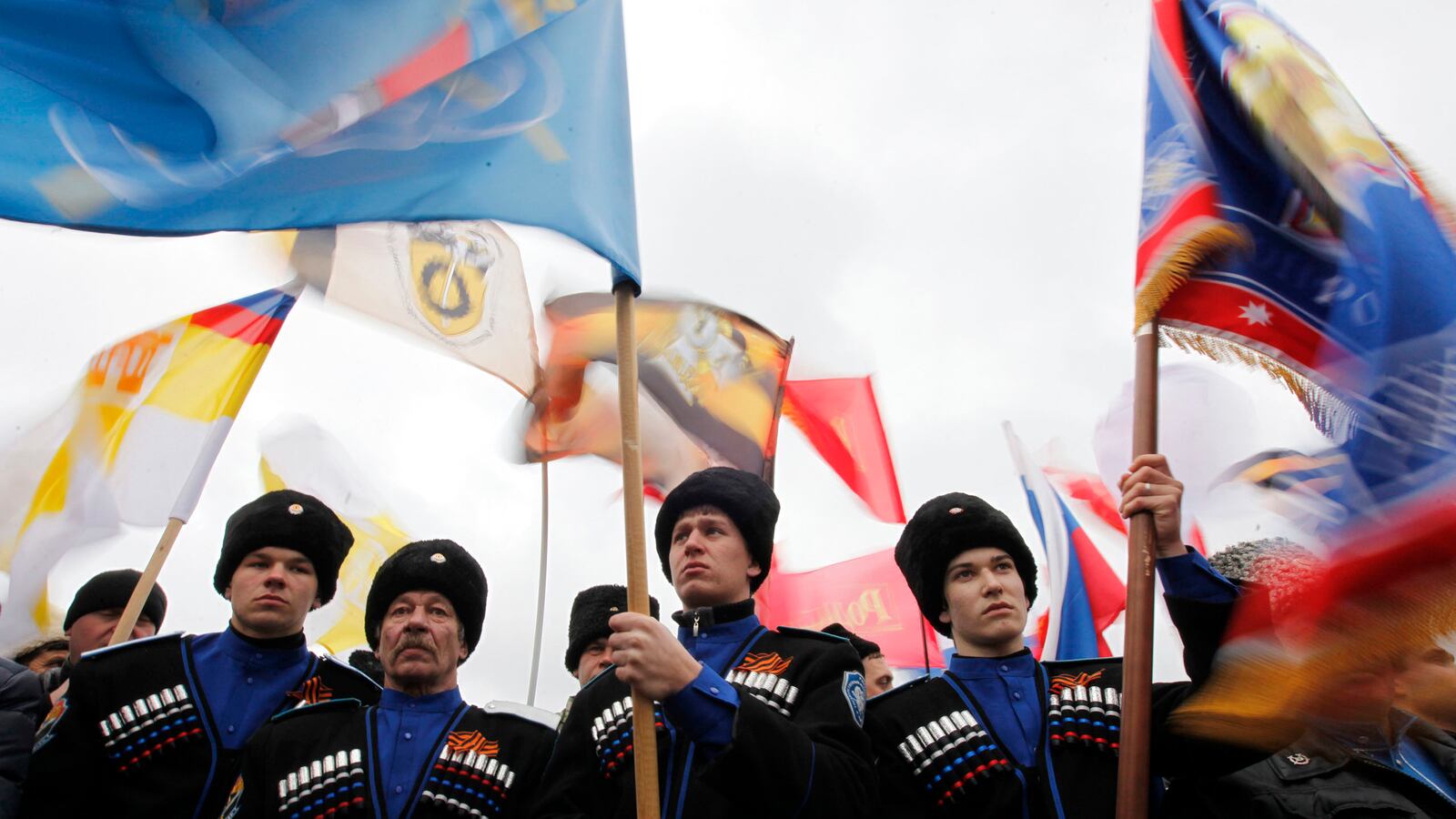Watch an hour of cable—and I’m talking MSNBC; forget Fox—and you might well come away from the hyper-ventilations thinking that we will or should go to war over Vladimir Putin’s takeover of Crimea. Listen: Nobody’s going to war over Crimea. This isn’t 1853. Yes, it matters to us how Crimea may once again become a part of Russia, and we don’t like it a bit, but let’s face it, it doesn’t really matter to us in cold, hard, realpolitik terms, whether Crimea is a part of Russia. It’s used as a naval base, and Russia’s had that all along.

Now Ukraine, that’s different. Or so everyone on TV says. But when everyone starts saying something, I start doubting. After all, a decade ago, nearly “everyone”—every “grown up,” that is, every person who took a “properly expansive” view of American security in the post 9/11 age—said we needed to topple a dictator who had nothing to do with 9/11. So: Is Ukraine different? We may decide that yes, it is, but there are some real and specific questions we’d better ask ourselves before we just automatically make that declaration.
One way we decide these things is by looking at the historical record, and the historical record practically screams no, Ukraine is not different, is not a vital American or Western interest. Soviet Russia annexed Ukraine in 1922, after a war that had commenced in 1917, when the Bolsheviks took Moscow. The borders of Ukraine changed many times over the years. Even its capital was moved from Kharkiv in the east to Kiev in the west. At the end of World War II, the USSR expanded Ukraine again, as Stalin unilaterally redrew the Curzon Line to take in Eastern Galicia and Lvov, Poland, which became and still is Lviv, Ukraine.
There were further alterations after the war. In 1954, as we all now know, Crimea became part of Ukraine (staying within the USSR). If the Western countries objected to any of these moves, they objected lightly and only formally. Roosevelt and Churchill pestered Stalin about the Lvov/Lviv situation at Yalta, but Uncle Joe wasn’t having it, and they left it alone.
So historically, Ukraine hasn’t been something the West regarded as worth fussing over very much. In more recent years, after the USSR’s collapse, Russia asserted that Ukraine and, for that matter, all 14 former satellite SSR’s were within the Russian sphere of influence. They even coined a term for it: the “near abroad.” Not all Americans have accepted the idea that the near abroad falls strictly within the Russian sphere of influence, by any means. When John McCain and Joe Biden and others thunder about bringing Georgia into NATO, they’re rejecting the idea explicitly. But like it or not, three presidents have basically accepted the idea—none more so than George W. Bush, who confronted Putin about his 2008 Georgia incursion (both happened to be in Beijing for the Olympics) and whose administration took a few steps but who never imposed sanctions, as Barack Obama has now. Bush’s green light to Putin shone far brighter than Obama’s has.
Of course, history changes. The fact that we never cared about Ukraine before doesn’t by definition mean that we shouldn’t care about it today. First, there is the matter of the 1994 Budapest Memorandum, in which the United States, Britain and Russia guaranteed Ukraine’s existing borders in exchange for it giving up its nukes. The Obama administration declared Russia in violation of that concord on March 1. More broadly, Putin is a despicable tyrant who wants glory for Mother Russia. If “glory” means swallowing back up those 14 former SSRs, then he does have to be countered. The Obama administration and the European Union should certainly impose tougher sanctions, and in the American case, on more than seven people. Maybe NATO troops should train Ukrainians, too—maybe not on Ukrainian soil, but somewhere in Europe. There are other similar steps that can be taken short of sending in a slew of “advisors” (special ops people) and military materiel just yet, like helping Ukraine get this new National Guard up and running.
But let’s just think hard about this. There’s nothing easier for pundits or commentators on cable to stomp the table about how Putin is playing us and running rings around Obama and he’s a madman who must be stopped. Our former ambassador to Moscow, Michael McFaul, said yesterday after Putin’s duma speech that the post-Cold War era was over. McFaul has been a reliable guide through these rapids, but that’s nonsense. We aren’t in a new Cold War. Spend five minutes ruminating on what happened during the Cold War and what sparked it, and you should be able to clear your head of such combustible notions. We’re a long way from that yet.
I’d like to hear everyone tossing around those kind of rhetorical lightning bolts answer, in a calm voice, three questions: One, why should Ukraine, which never before was a realpolitik first-order concern of the United States, be one now? Two, what exact sacrifices are we willing to make to preserve Ukraine’s territorial integrity? And three, what broader risks might those acceptable sacrifices entail, and are they worth it?
There might be very good answers to all three questions. But our political culture has a very bad habit of not wanting to discuss them much. That’s a habit we need to change.





